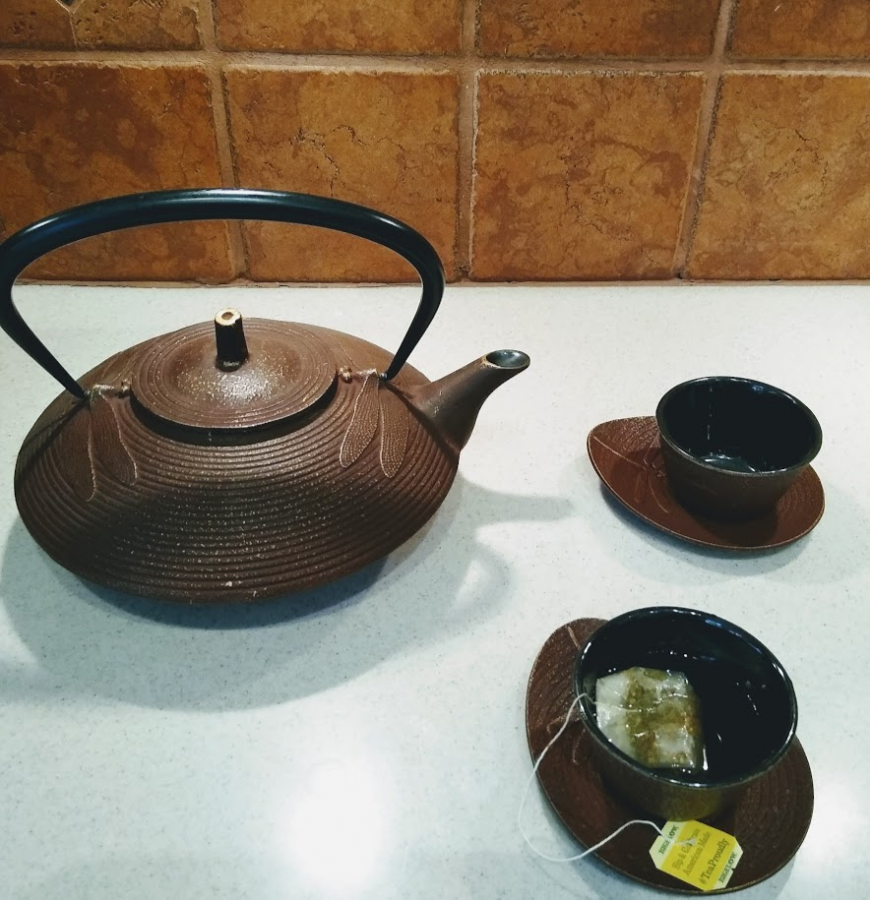Benefits of Tea
Tea can be a great tasting drink with great benefits too.
February 25, 2021
Tea is the second most consumed beverage in the world, after water. There are 6 main types of tea; however there are over 20,000 different teas in the world, according to Mary Lou and Robert J. Heiss in “The Tea Enthusiast’s Handbook: A Guide to the World’s Best Teas.” Black tea is the most common tea, with the original Da Hong Pao being the most expensive. There are both caffeinated and decaffeinated teas, but the majority of caffeinated teas have lower levels of caffeine than coffee.
Almost every tea contains antioxidants, which are substances that help protect cells against free radicals. Free radicals are made when you’re exposed to tobacco smoke, radiation, or when your body breaks down food. Some of these antioxidants help reduce blood sugar and blood pressure, while others counteract cancers. Harvard Medical School says that, “Researchers determined that tea drinkers are less likely over time to develop diabetes, compared with people who drink less tea.” However, any benefits of tea will be lowered or ruined by drinking processed teas or sugary tea-like beverages.
Black tea: Black tea is the base for some instant teas as well as chai tea. Studies on black tea show that it may protect lungs from damage caused by cigarette smoke by preventing the oxidation of lung proteins. “It also may reduce the risk of stroke,” according to Web MD. Black tea is the most commonly consumed tea and it is made from the Camellia Sinensis plant, a plant used primarily for tea making.
Green tea: Green tea is made by steaming, cooking, and drying the leaves of Camellia Sinensis. According to Web MD, the antioxidants in green tea may hinder oxidative stress on the brain and the growth of multiple cancers, lower the risk of neurological disorders and strokes, improve cholesterol levels and burn fat, and prevent arteries from clogging.
White tea: Also made from the Camellia Sinensis plant, white tea has a very high level of antioxidants, which gives it more anticancer properties. “White tea may also be good for your teeth since it contains a high source of fluoride, catechins and tannins that can strengthen teeth, fight plaque, and make it more resistant to acid and sugar,” says Penn Medicine. White tea has the least amount of caffeine, which makes it a good tea to drink in the evening.
Herbal tea: Different types of herbal teas have different benefits. For example, chamomile tea can alleviate muscle spasms, reduce stress, and improve sleep and relaxation. Multiple sources say that hibiscus tea lowers blood pressure, and Penn Medicine suggests that hibiscus tea can improve liver health and it may stop kidney stones from forming. Peppermint tea contains menthol, which helps with stomach and intestinal problems, as well as motion sickness.
Oolong tea: According to Penn Medicine, “Oolong tea is notable for containing l-theanine, an amino acid that reduces anxiety and increases alertness and attention. Scientists have found that l-theanine can help prevent cognitive diseases such as Parkinson’s and Alzheimer’s diseases.” This tea has also been linked to lowering risk of type 2 diabetes, as well as reducing inflammation and preventing cancer growth.
As with many things, tea is only good in moderation. 3-4 cups (710-950 ml) per day is the suggested maximum amount, although some people can drink up to 10 cups (2366 ml) without negative effects.












